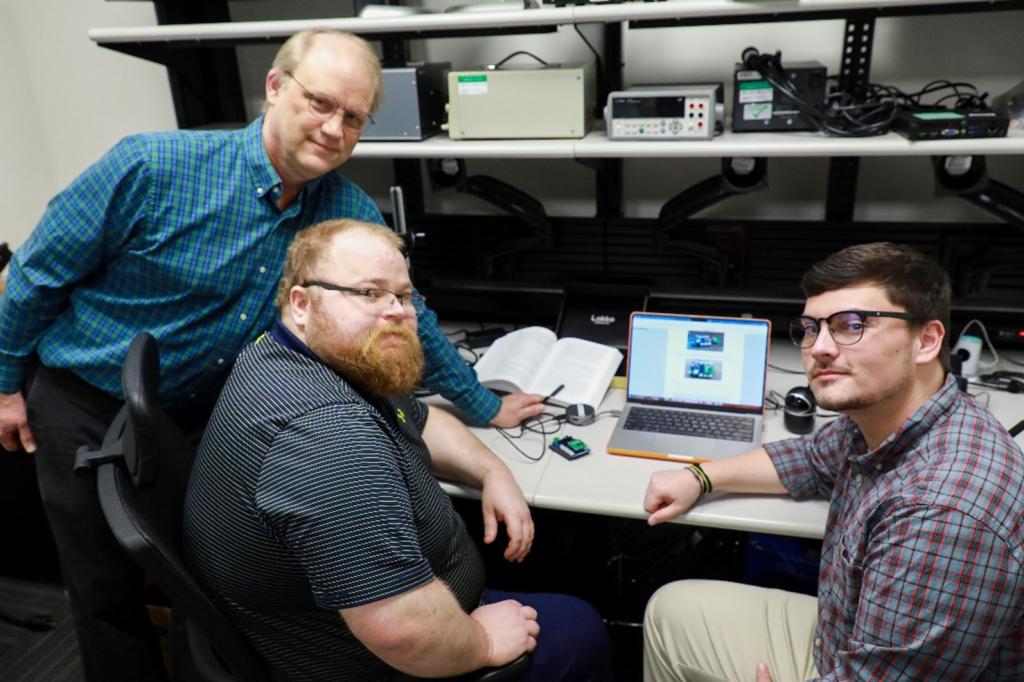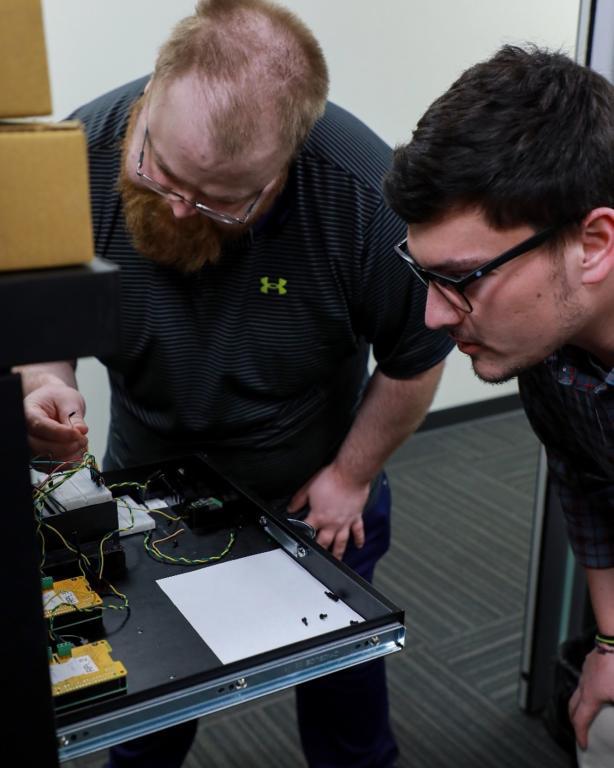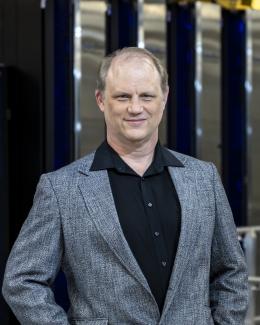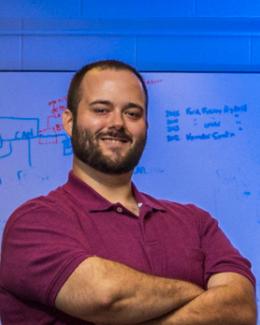
Luke Koch knew he wanted a career in cybersecurity, but he was not sure how to get there. As an undergraduate studying math and computer analytics at the liberal arts Maryville College in Maryville, TN, his opportunities to explore the field of cybersecurity were scarce. But Koch attended a talk by Jeff Nichols, a cybersecurity researcher at the Department of Energy’s Oak Ridge National Laboratory, and he knew he found his path.
“Cybersecurity is more closely related to math than most people realize,” said Koch, a cyber-research assistant working on detecting vulnerabilities in artificial intelligence software. Koch joined the lab as an employee in January 2024 and immediately helped establish the Emerging Cyber Systems Research Initiative, an internship that will help Maryville College students studying math and computer science gain experience in cybersecurity.
After Koch gave an alumni talk at Maryville College, a professor approached him with an idea to provide funding for an internship if ORNL could provide hands-on cybersecurity experience for students.
“Promulgating the deep and varied expertise we’ve developed at the lab accelerates research for the next generation, provided we find and equip that next generation with awareness of the problems we face and promising career paths for them to follow," Koch said. “Jeff Nichols did that for me, and I wanted to pass on his legacy of mentorship to the next generation."
Koch is currently mentoring the first student recipients of the new initiative. While Koch is working on artificial intelligence projects, Nathan Keough, a senior at Maryville College studying computer science and math, is learning about vulnerabilities in vehicle computers from mentor and cybersecurity researcher Sam Hollifield.
“I had never really considered vehicle cybersecurity until I started working on this project,” said Keough. “After going down this rabbit hole at ORNL, I find it very, very fascinating.”
Keough is using machine learning to find ways to detect intrusions into a semi-truck’s CAN bus system, the central network that runs much of the truck’s technology. He said it's an interesting application for cyber security research because it's not as mainstream as other topics but has relevance in the real world.
Koch and Keough are both interested in applying cybersecurity research to national security. Koch comes from a family of public servants and found an academic route to fulfill this role. Keough interned for the Department of Defense earlier in his schooling and learned many aspects of applying cybersecurity to mission challenges. Keough wants to continue in the national security research field to contribute to meaningful projects.
Mentoring is part of the culture at ORNL. Nichols, who routinely gives presentations to area schools, wants to connect students’ areas of interest with active research.

“When I talk with students, I ask them what their favorite math class is. For example, if the answer is linear algebra, I share how machine learning and supercomputing use linear algebra at scale,” said Nichols, a group leader for emerging cyber systems research. “It’s exciting to see them associate their interests with ongoing work and see them start to see themselves in this career path.”
In Summer 2024, Mingyan Li, a senior R&D cybersecurity researcher, will host a Maryville College student intern through the Emerging Cyber Systems Research Initiative. Li recognizes the need for opportunities to inspire future researchers as a way to give back to the local community.
“ORNL has so much to offer students,” Li said. “We work on a variety of projects that provide not only access to technology but also hands-on experience not available elsewhere. Students also interact with high caliber professionals with their mentor and colleagues.”
Li’s student will explore how to make machine learning useful on small devices, an approach to measure how effective these systems with small computer power are at detecting cybersecurity threats. Li hopes to show a student how to think about maneuvering technology between devices while maintaining the highest level of security. Since the team she works on also includes mathematicians, she can cater the intern experience to the interests of the student.
National security sciences at ORNL rapidly advances science-based solutions to mitigate dynamic national security threats, outpace our adversaries and protect America. Internship and fellowship opportunities are available throughout the year to help students find careers that secure the nation.
UT-Battelle manages ORNL for the Department of Energy’s Office of Science, the single largest supporter of basic research in the physical sciences in the United States. The Office of Science is working to address some of the most pressing challenges of our time. For more information, please visit energy.gov/science. — Liz Neunsinger





